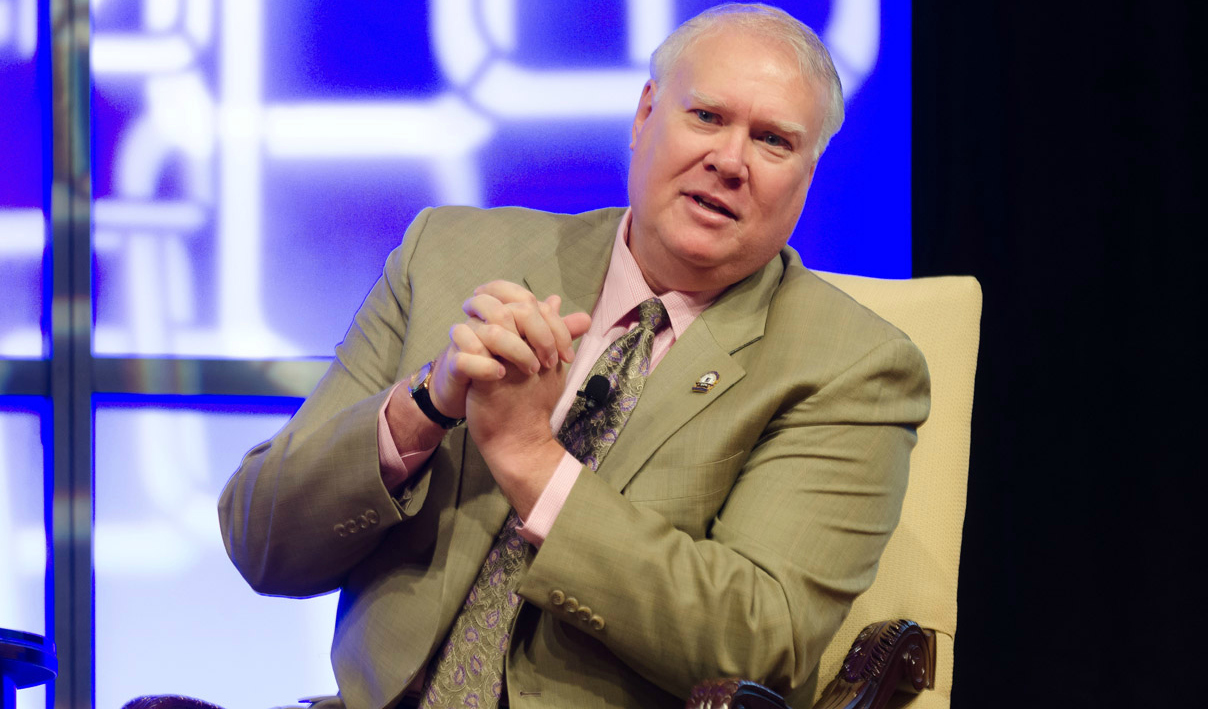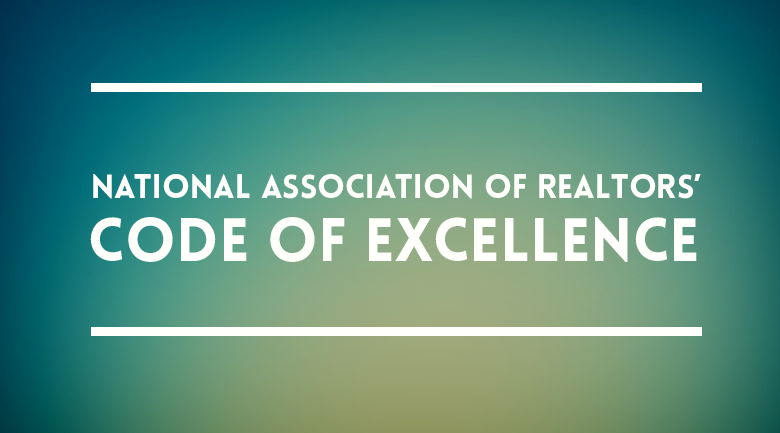
Above: Capital Factory’s dining room, just one example of tech incubator that the world’s largest trade group is competing with.
Trade group launches technology incubator
This month, the National Association of Realtors (NAR) launched REach™, the new real estate technology incubator which seeks companies at all stages of growth, noting that the accelerator program “will be particularly useful to those just now turning a focus to the real estate ecosystem.” The nine monthprogram will accept six to 10 companies per year, is accepting applications through January 10, 2013, and begins in March.
NAR emphasizes that “while other Accelerator programs provide some similar functions and many significant benefits, REach™’s differentiating factor is a focus on education, mentorship and market exposure around access to the trillion-dollar real estate market and the strategic expertise NAR can bring. In the process, NAR will also bring added value to its membership and continue to fulfill its core mission by identifying those technologies, resources and companies that will most benefit the industry.”
The program’s marketing fees
According to the REach™ website, “Participants will be responsible for providing a nominal marketing fee and small percentage of common stock. Contact us for more details.” We asked for clarification from Constance Freedman, Founder, Managing Director at REach(TM) and Managing Director, Second Century Ventures; Vice President of Strategic Investments, NAR. “We are asking that companies reach out to us for details so we can best communicate the value for both sides and answer any questions accordingly,” Freedman said.
When asked for a ballpark figure, Freedman said, “The program is set up so that all parties are aligned. For any further details please just direct questions back to us. I’m not trying to evade the question but purposefully not publishing fees so that we can have a discussion with all qualified applicants to ensure cost/benefits are communicated clearly.”
Outline: the value of the program
Freedman explains the fees in terms of advertising dollars. “The cost is less than what we estimate [for a vendor to have a booth] to go to one show, and the value is equivalent to going to two shows, NAR Annual and NAR Mid-Year, and we are including them in offline as well as online ads for exposure on various channels. We offer access to 150 mentors and 500 beta testers.” Additionally, they “help locate other investors, help startups with their pitch decks.”
“This program puts the $4.5B NAR brand behind [the participants], the most powerful force in the industry, as well as gives access to mentors that are entrepreneurs and CEOs within the industry, collecting $1B in revenue in real estate alone. Also, participants get exposure to potentially 12 million customers, 1 million of which are Realtors.”
Freedman says this program is different than traditional incubators. “It is opening up a market, and we work with the startups to pull out all the stops in that market, it’s a strategic play. It is a longer program than traditional incubators, allowing for real market penetration, whereas traditional incubators’ end game is different, focusing on the value of the company,” and less on market penetration.
How the marketing fees work
When do applicants have to contribute their marketing fees, and is it negotiable? Can they opt out of the NAR Expo, is it based on their current stage and funding status, or is it flat fee? Freedman told AG the fees are non-negotiable, and are a flat fee, due up front.
“After several months of research prior to launching REach,” Freedman said, “we are confident that fees will not be a barrier to entry for qualified companies. There is no opting in/out of things, we’ve built a program that we believe can provide the best opportunities for companies to accelerate their potential growth in this market. The fees are not meant to be a money making element of the program – they are going towards promoting the companies and providing further exposure for them to the market place. The equity component aligns our interests long term. Ultimately the value the companies will receive should far surpass the fees charged from the program; we will have conversations with all qualified applicants to help them assess whether that is the case for them – we only want to work with companies where we have a mutual belief that this is true.”
So why no transparency?
“It is not a figure made public because we want to be able to have a conversation with these companies, and avoiding the gut reaction they may have in response. We would much rather have them direct questions to us in order to make a more informed decision. We don’t want to turn people away,” Freedman said.
REach™ does not offer up front investment in the companies participating in the accelerator program, but Freedman said that “the goal is to graduate them into Second Century Ventures [NAR’s investment arm].”
Dale Stinton, CEO of NAR said, “I think we could better describe it as a program participation fee which is calculated to cover our costs including marketing, our time, and our administrative expenses.”
Another part of the program that many have asked us about is the fact that the incubator will not sign a Non-Disclosure Agreement (NDA), nor a Non-Compete, and some criticize this, but it is actually normal not only for accelerator programs to not sign these documents, but angel investors, venture capitalists, and other programs don’t either.
“…a way for NAR to monetize its cabal”
Jeremy Bencken, Mentor at accelerator program, Capital Factory and Founder of Wordloop said that charging early stage companies is “out of step with the times.”
Bencken added that “Most accelerators invest a mix of cash and intangible services into their accepted companies. I don’t know of any respected ones that charge a fee. Capital Factory invests $20,000 in the companies we accept, along with free office space, legal, PR, design, and access to the advice and networks of our mentors.”
“If history is any guide,” Bencken said, “a fee merely limits you to startups without better options. If your goal is to build a portfolio of sustainable, high-quality companies, hitting startups with fees is a major impediment to that, and historically, is a failed business model. For example, in the bad old days, the DEMO conference charged startups to launch at their show. In 2006, I was invited to launch TenantMarket.com at DEMO, but we declined when we discovered the fee was $20,000. TechCrunch Disrupt and LAUNCH were founded specifically to destroy that business model. And they did. Today, the best startups have their choice of free launch conferences.”
“…the market will decide if charging startups is a good idea”
Which brings us to today. “Many angel networks used to charge startups application fees up to $1,000 simply to apply to pitch. Today, the best companies and angel investors connect primarily via AngelList, and most angel groups have abandoned their application fees,” Bencken said. “Ultimately, the market will decide if charging startups is a good idea, but given that there are only 3-4 billion dollar companies founded each year, as an investor, you’re better off by opening your doors as wide as possible to ensure that you get a shot at them.”
Finally, Bencken said, “The cynic in me says this is a way for NAR to monetize its cabal. It’s not hard to read NAR’s pitch as, ‘Hey startup founder, want to sell your product to Realtors? Just pay NAR a small marketing fee, give up some equity, and you can join our ‘accelerator’ program. You’ll get the NAR stamp of approval, and all your sales will take care of themselves.’ Good accelerator programs offer a lot more than a brand name, and NAR would be foolish to devalue its brand in that way.”
“More like a marketing partnership than an incubator”
Jonathan Eyler-Werve, VP of Technology at MoxieJean.com which helps busy mothers reuse baby and childrens’ clothes, simply said, “this smells badly.”
Having recently graduated an accelerator program, Eyler-Werve said, “There are a lot of accelerators firing up right now, with no corresponding scale up of VC or angel funding, no sudden increase in the pool of qualified people willing to mentor. So there is a boom bust cycle to this. If I were signing, I would ask some hard questions of any accelerator. Questions about tone, about their track record, and of course about money.”
Regarding the REach program, he noted the program sounds “more like a marketing partnership than an incubator. “This place wants cash – which investors should be providing, not taking – committed to a marketing buy that may not have anything to do with the business model you commit to? If you have a product and marketing strategy locked in, what is the value add exactly?”
“It does not sound like an incubator to me”
ReachFactor CEO, Suresh Srinivasan has created numerous startups over 15 years, and has been an angel investor in tech startups for the last five. “I’ve never heard of the typical incubator asking for cash or marketing commitments up front,” he said. “Usually they put (very little) money into the company being incubated in exchange for early equity on merits of the idea & the founders’ willingness to grind it out. I can’t imagine how much cash is lying around an idea-stage company, but those booths at NAR are pricey!”
Srinivasan adds that the fees could be a way of vetting the field. Because they don’t put money into the company, he opines that “it sounds more like they offer the promise of guidance & access to the market. Asking for financial commitments from participants probably helps them vet the field a little and prevent a flood of applicants who’re not 150% committed.”
Under the current model of the accelerator, he says it is “more like a brand’s preferred alliance program with a dash of mentoring and advice to boot. It does not sound like an incubator to me.”
Incubator brings the most valuable assets possible to bear
Simon Justice Hall, Realtor and Branding/Multimedia Consultant at AustinCondoMania said that exposure, market penetration, mentorship, and beta users that are offered are “the most significant ways to support a budding company in the real estate business.”
Hall added, “Fortunately, unlike the restaurant business, you don’t need $100k in restaurant equipment and a physical location to start cooking grandma’s recipes in real estate. I would consider mentorship the most valuable contribution in the arsenal.”
Incubators are typically run for the good of the entrepreneur ecosystem
Tina Cannon is a Partner at Napkin Venture, Co-founder of PetsMD.com, and Entrepreneur-in-Residence at Texas State University, recently co-founding PreAccelerate, a pre-seed stage startup bootcamp.
Cannon said, “I cannot recall ever seeing “fees” as part of the requirement to be in an incubator, those are more program styled groups and should not call themselves incubators. If they want to charge fees, then have a class or specific marketing program to assist the industry.”
“It has been my experience that those involved in incubators like myself, do it because we are passionate about entrepreneurs,” Cannon added. “We are not in it for money and the vast majority of the time, we never see any money! We do it because it is the right thing to do for the entrepreneur ecosystem. The hope is that over the years of incubated companies, that one might actually rise to the top and if not, then we are still satisfied with what we have all done to impact entrepreneurs.”
Lani is the COO and News Director at The American Genius, has co-authored a book, co-founded BASHH, Austin Digital Jobs, Remote Digital Jobs, and is a seasoned business writer and editorialist with a penchant for the irreverent.








































Greg Fischer
November 14, 2012 at 4:18 pm
Kudos Lani for asking the hard questions and brining in other viewpoints. Excellent piece
drewmeyers
November 14, 2012 at 4:52 pm
Yea, agree fees aren’t the right model for a successful incubator, particularly since giving up equity is also required. This is certainly a step in the right direction, but not convinced it’s the exact right model.
Would be really curious to hear from some entrepreneurs early in the process of tackling the real estate industry – is this interesting?
zeb
November 15, 2012 at 12:17 pm
@drewmeyers I love the idea of industry specific organizations getting involved more and helping foster entrepreneurship. But I would measure this opportunity against others, and from what I understand from the article, REach easures up poorly to other accelerator or incubators. Other programs don’t need to hide their equity requirements in order to have meaningful conversations with applicants, so why does REach?
RobertaMurphy
November 14, 2012 at 5:18 pm
Great research, Lani! I had looked at the site including vendor’s application form and wondered, like you, what costs would be for chosen entrants. This just got clipped to Evernote!
entrepreneurSF
November 14, 2012 at 8:08 pm
We’re launching an awesome, next generation transaction system for real estate agents and clients on November 28th, and we’re probably going to apply to REach, even if there is a fee if we get accepted. Of course, that depends on how much the fee is. However, assuming it’s reasonable, we recognize the strength of NAR’s brand and what it could mean from a distribution standpoint, so it’s not a deterrent at all.
Remember — scaling a tech startup is all about execution and there are a million other startups with the same idea as you/us. The ones that execute the best win. I think a big part of executing successfully is getting a top-tiered brand like NAR behind us.
And as far as semantics are concerned, we don’t really care if it’s called an incubator, a marketing partnership, or something else, as long as it delivers what the program promises.
tinainvirginia
November 15, 2012 at 1:29 pm
Having recently attended a luncheon meeting regarding REach (which included a very lively discussion), I really feel the fee issue is not looking at the big picture. What other “incubator” can put a brand like NAR, along with it’s membership numbers, behind a new company? It’s a proven fact that if you offer a free lunch, you will get less significant participation than if you offer one with a small fee. Where there’s personal investment, there’s loyalty. This is a brand new venture and I’m sure there will be changes as the learning opportunities present themselves. I applaud NAR for creating and implementing REach and look forward to watching it grow.
drewmeyers
November 15, 2012 at 1:45 pm
@tinainvirginia So is this incubator guaranteeing exposure to NAR’s members? What if the company ends up flopping, and adds no value – is NAR still going to promote them since they invested in the company? Just make the application really long and detailed instead of charging fees. The people not serious will drop off. Make the selection criteria and evaluation process extremely stringent. Make this truly the best of the best companies – that’s how you attract great entrepeneurs. YCombinator or TechStars could easily add a few real estate mentors to their list who are well connected, and they’d instantly have a better incubator program for someone looking to make a major dent in the real estate industry (IMO). I think there is a lot to be said for being naive ( and REach puts you in a RE echo chamber) – https://www.linkedin.com/today/post/article/20121106012025-2298009-when-being-naive-is-an-advantage
Don’t get me wrong, I applaud the initiative as well. Just think there will be some kinks to work out, as with every new venture 🙂
AGBeat
November 15, 2012 at 2:23 pm
@drewmeyers clarification: REach does not offer investment into the participating startups.
drewmeyers
November 15, 2012 at 2:33 pm
@AGBeat So it’s just a paid marketing partnership + mentors?
AGBeat
November 15, 2012 at 4:32 pm
@drewmeyers they say interested parties should take into account being backed by nar, exposure, and market penetration (as a goal, we doubt that’s a promise).
justinlie
November 16, 2012 at 12:55 pm
Great and informative article Lani! Does anyone know the typical cost for an exhibitor booth at the convention?
AGBeat
November 16, 2012 at 1:10 pm
@justinlie Lani here. It’s hard to say, because it depends on booth size/location, etc. The bottom line is that our sources say it’s five figures to participate in the incubator program, which is easy for some startups, but not likely optional for idea-phase or early-stage startups who have not begun monetizing or who do not have existing investment.
justinlie
November 16, 2012 at 4:11 pm
@AGBeat Thanks Lani!